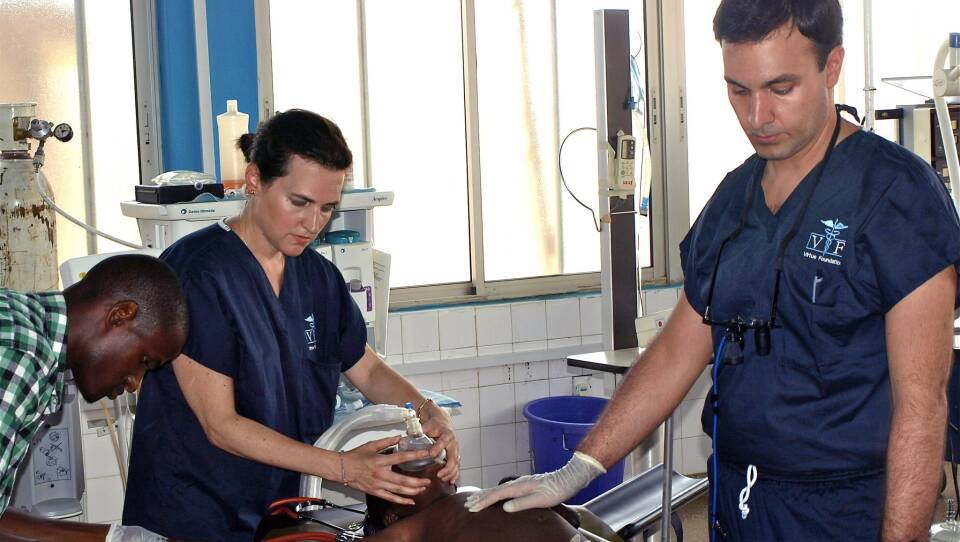In some places where Dr. Joan LaRovere, a cardiac intensive care physician at Boston Children’s Hospital has worked, like Ghana, there are not enough doctors and other health care providers to meet people’s needs.
“There's 143 million people every year in low and middle income countries who are not getting the surgery they need,” LaRovere told GBH’s Morning Edition co-host Jeremy Siegel. “Any efficiency in this information flow, you're talking about millions of lives.”
That's why her first brush with artificial intelligence in medicine came working outside the U.S.
“Patients needs a specialist. When you're sick, you don't look just for a hospital or a doctor. You're looking for the hospital or doctor that can address your problem,” she said. “We really wanted to get to data at that level and then match specialists to be able to help, to bring that volunteer crew that's already working diligently in low and middle income countries, to be able to partner with people on the ground and help get that targeted surgery and targeted health care to the people who most need it.”
The type of AI she has been using utilizes machine learning to identify patterns and pair patients with the medical providers who may be able to help them.
This week LaRovere is part of the Imagination in Action conference, in which people using AI in various fields are coming together at MIT to talk about their work.
“You can use the big data within a hospital to identify particularly around different specific diseases and be able to understand potential new treatments, new signals, things that we couldn't see until we were able to amass it at a different scale,” she said. “There's just so much potential and possibility, and I think it's very exciting to be a physician in this transformative time.”
Through her Virtue Foundation’s Actionable Data Initiative, LaRovere and her team can input data from social media and other sources and use machine learning to detect patterns that might point to specific needs. They’ll then use that information to point non-governmental organizations and health care facilities to the areas where their assistance is most needed, she said.
“We're using artificial intelligence to identify where the health care facilities and health care NGOs are, what their capabilities are, what specialties do they have there, and what sort of capabilities does that health care facility have in terms of being able to bring in additional specialties,” she said.
The goal, LaRovere said, is to expand the number of people doctors can reach.
“AI offers us an opportunity to really help and get care to those most in need and make the invisible visible,” she said.
So do rapid advancements in AI scare her?
“Yes and no,” LaRovere said. “I think it's all about our intentions, right? A scalpel is an instrument the same way AI is. And I can take a scalpel and I can do surgery. Or a colleague could do surgery. And through that, you really transform someone's life. A scalpel could also be a weapon. So it all comes down to our intentions with how we're going to use the tool, in the same way that we're using big data to be able to try to understand where are the medical needs in the medical deserts in low and middle income countries.”









